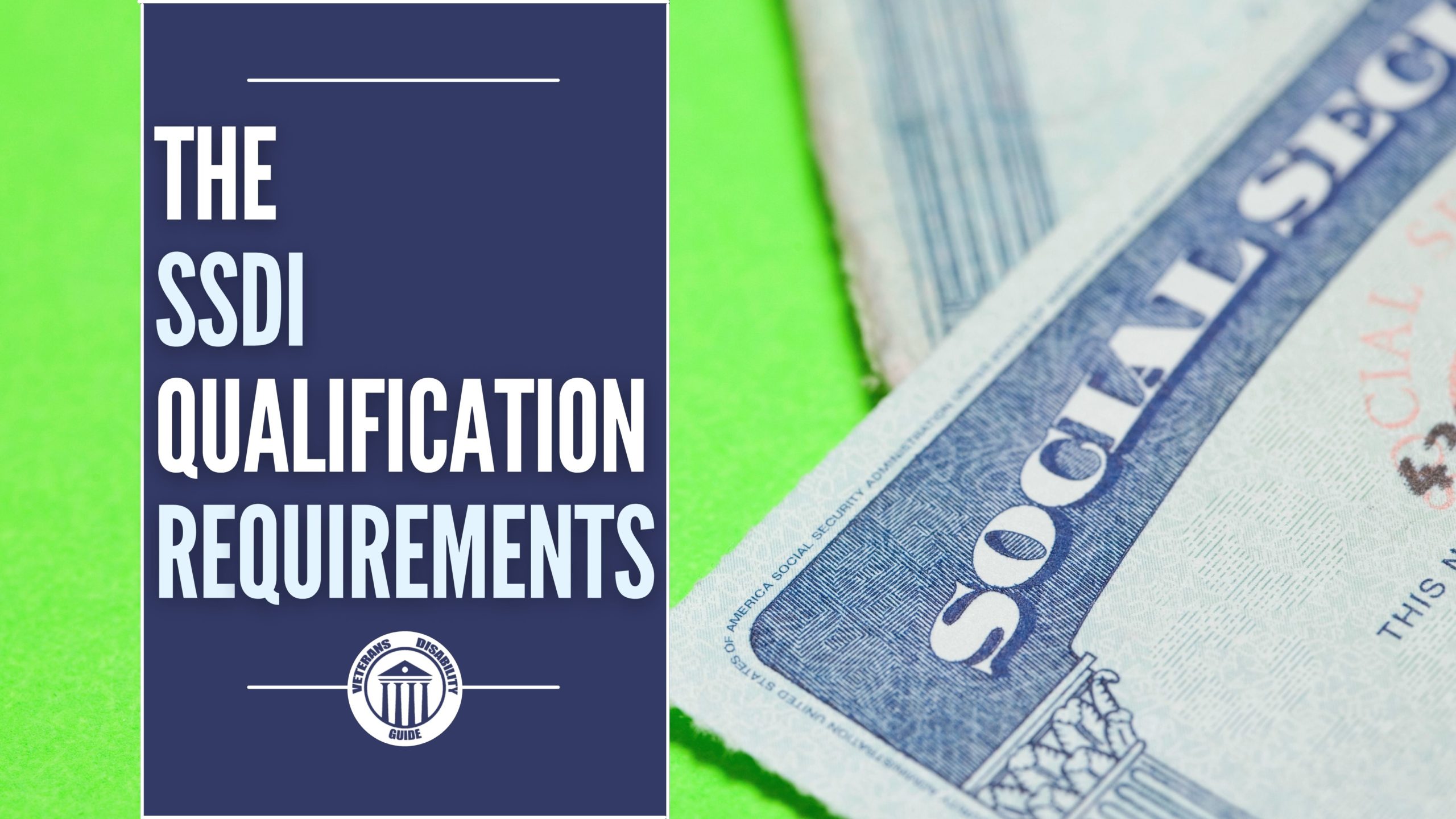
13 May The SSDI Qualification Requirements
The SSDI Qualification Requirements
To qualify for Social Security Disability Insurance, you must have medical evidence proving disability, as well as the required work credits. While this may seem cut and dry, there are many factors that go into these requirements.
The Requirements
The Social Security Administration (SSA) has strict requirements that must be met in order to qualify for Social Security Disability Insurance (SSDI). To qualification for SSDI all claimants:
- Must have doctor evaluations proving medical disability.
- Expect to be out of work for at least 12 months due to disability.
- Can not be earning more than $1,350 per month.
- Must have worked 5 out of the last 10 years.
- Must have paid into the social security system during those 5-10 years.
Understanding the Requirements
The purpose of SSDI is to financially assist those who are unable to work due to a disability. You may be wondering what your work history prior to your disability has to do with SSDI. The requirements for SSDI may seem arbitrary, but each qualification has reasoning behind it.
Medical Requirements
Medically, to qualify for SSDI, you must meet the SSA’s criteria of a disabled person.
The SSA defines a disabled individual as: Anyone who cannot engage in any substantial gainful activity (SGA) due to a medically determinable physical or mental impairment(s) that is either: expected to result in death, or has lasted /is expected to last for a continuous period of at least 12 months.
If a medical professional deems you unable to work due to your disability, you have achieved a third of the required qualifications.
Substantial Gainful Activity
The SSA uses the term “substantial gainful activity” (SGA) to determine what level of income indicates too much work. The updated SGA for 2022 is earning $1,350 or more per month.
SGA is not solely income related, there are other types of activities that can count as SGA. Activities such as volunteering, or any other labor that you could be paid for, can count as SGA.
If you earn more than $1,350, or if you are completing laborious tasks frequently, you do not qualify for SSDI benefits. If you earn less than $1,350 monthly and you do not take part in tasks considered SGA, you have only one more qualification to meet.
Work History Requirements
Since SSDI is part of the Social Security Administration, you have to have paid into Social Security in order to receive disability benefits.
The SSA requires an individual must have worked 5 out of the last 10 years, and the job(s) they had paid into Social Security. If you do not meet both of these requirements, you will not qualify for SSDI benefits.
Those who have worked 5 out of the last 10 years but were not at a job that taxed their paycheck and paid into Social Security will not qualify.
Disqualifications
Even if you meet all of the qualifications for SSDI and receive benefits, it is not a guarantee that your benefits will last forever.
Returning to Work
The most common reason why claimants lose these benefits is that they’ve gone back to work. In order to remain eligible for SSDI benefits, the claimant must not be involved in any SGA.
If the claimant returns to work after receiving benefits, they may be able to continue receiving benefits for a period of time. The name of this period is the Trial Work Period (TWP). The TWP allows claimants to continue receiving benefits for up to nine months while they reacclimate to the workplace.
Retirement Age
Another reason why claimants may no longer receive SSDI benefits is that they’ve reached the age of full retirement. Currently, 66 is the age when the SSA deems you fully eligible for retirement. Those receiving SSDI are not allowed to receive both SSDI and Social Security retirement benefits simultaneously. When someone claiming SSDI reaches 66, they will simply switch programs.
When this switch occurs, it is not likely that income will be greatly affected.
Incarceration
Claimants who have been convicted of a crime where the punishment is incarceration in a prison or penal institution, will not receive Social Security disability benefits for the period of their incarceration. The suspension of their benefits will begin 30 days after their sentence begins unless they participate in a rehabilitation program.
The month following their release they’ll see the reinstatement of their benefits. If convicted of a misdemeanor, they may be allowed to keep their benefits so long as their jail sentence is less than one month. Any longer than one month, and benefits are withheld until the release date.
Ready To Start Your SSDI Claim Today?
See If You Qualify, Our Evaluation is Free and Takes Only 60 Seconds to Complete.


